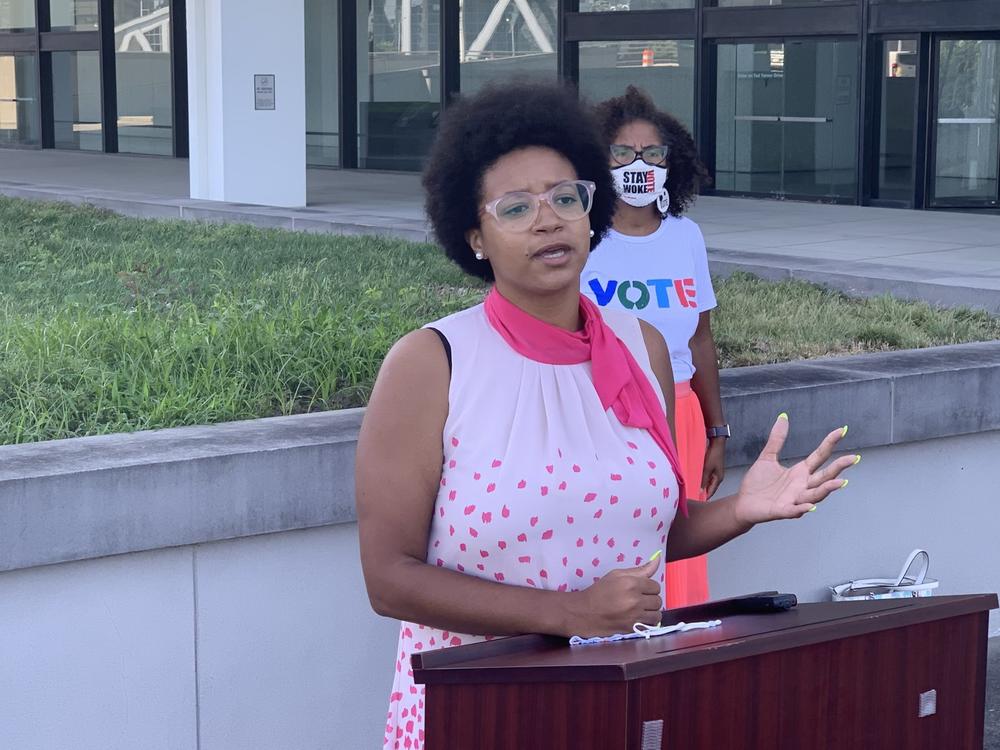
Caption
Brionté McCorkle, a plaintiff and the executive director of Georgia Conservation Voters, said she is grateful that the U.S. Department of Justice waded into a lawsuit that challenges how Georgia elects its utility regulators.
Credit: Stanley Dunlap / Georgia Recorder

